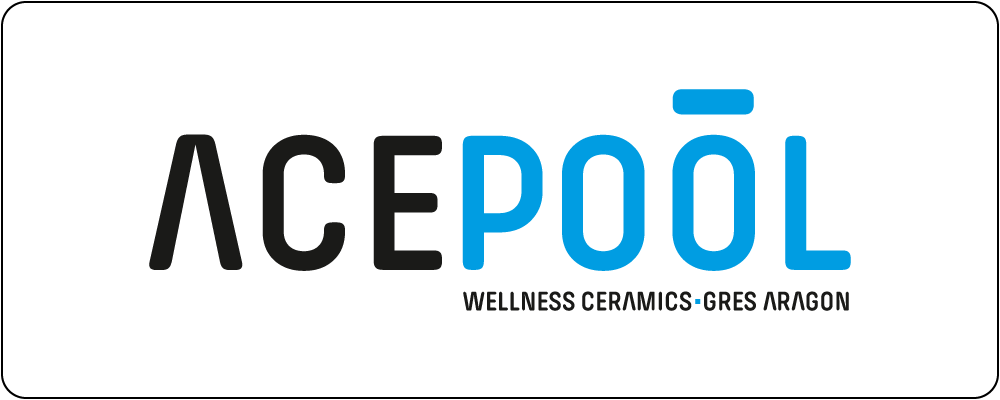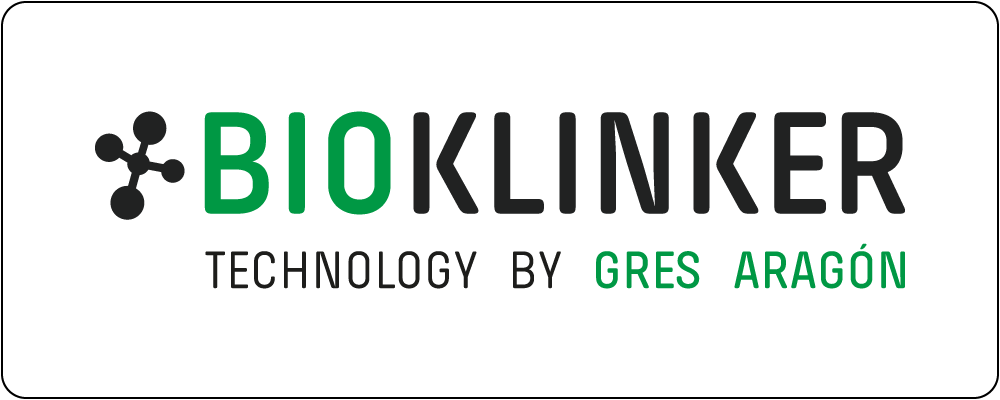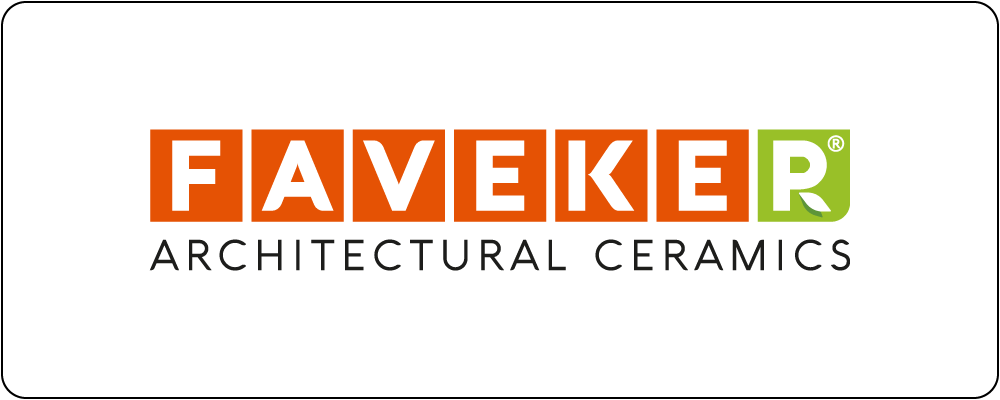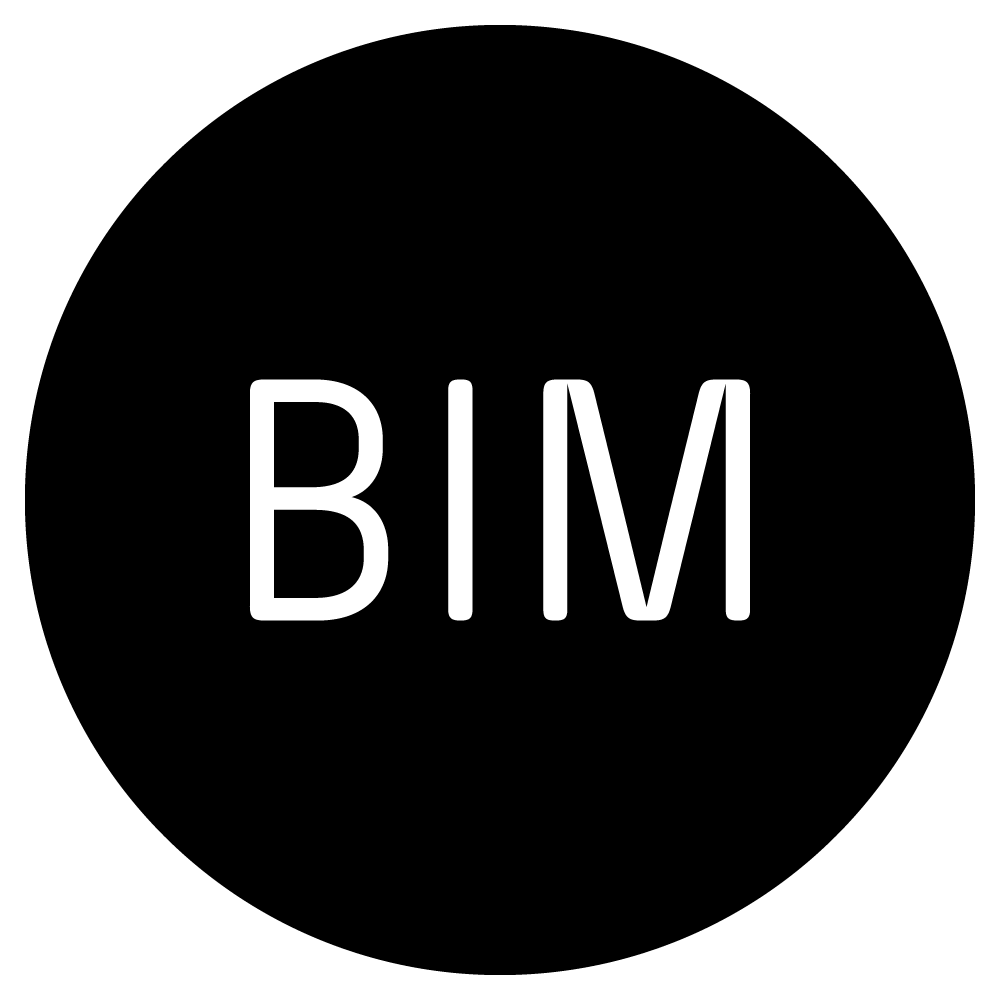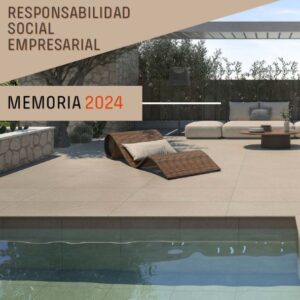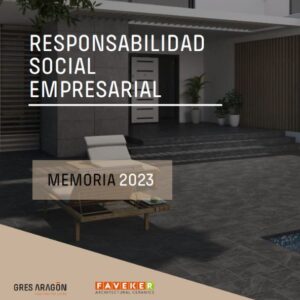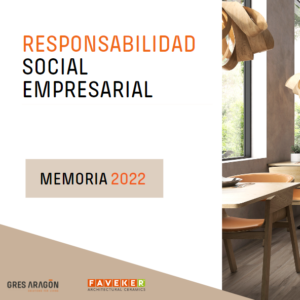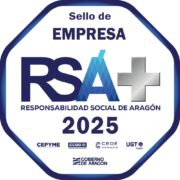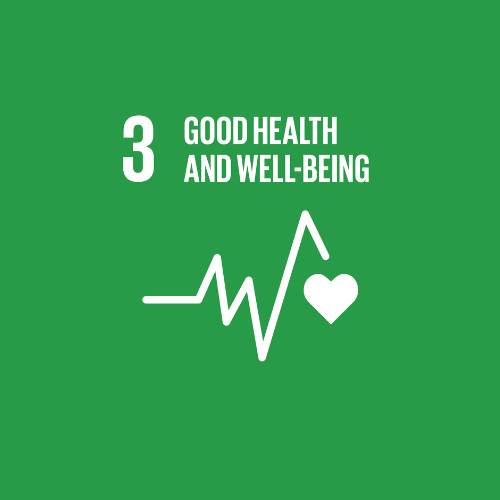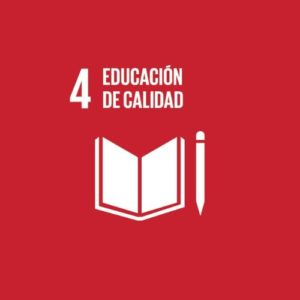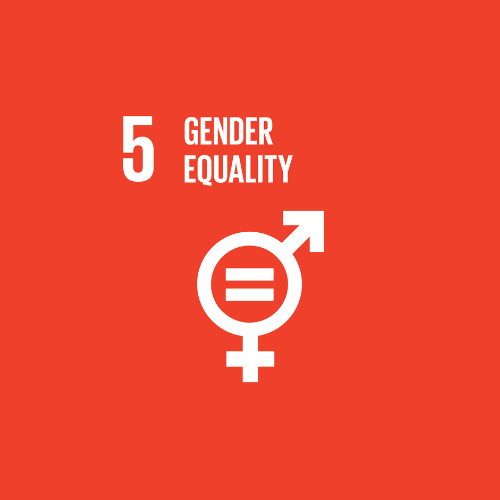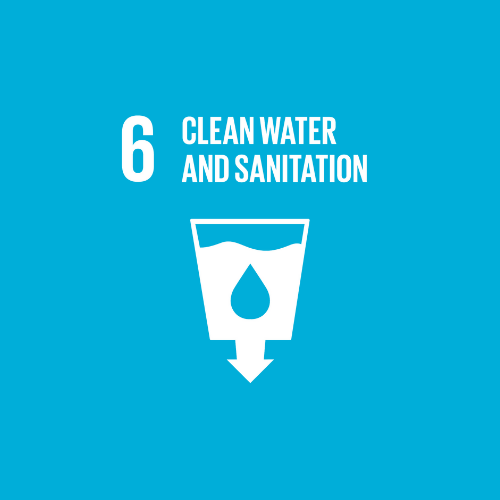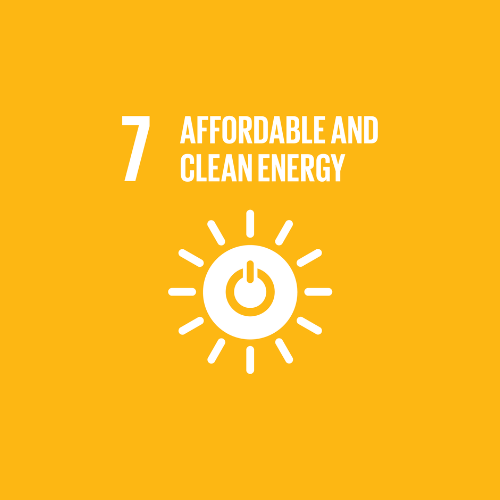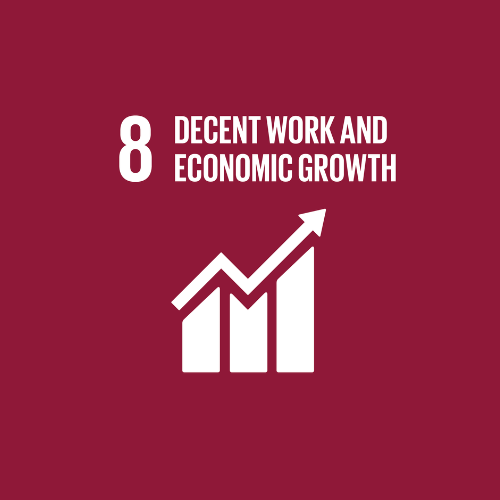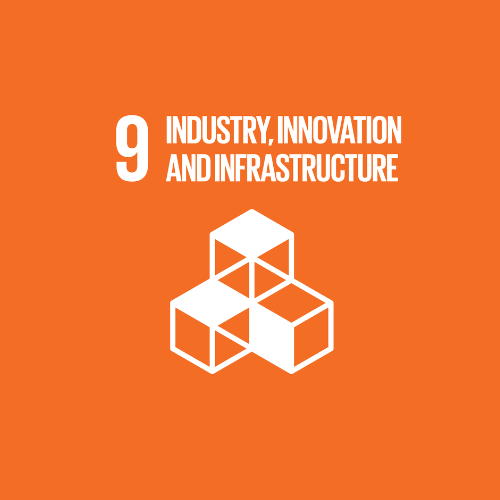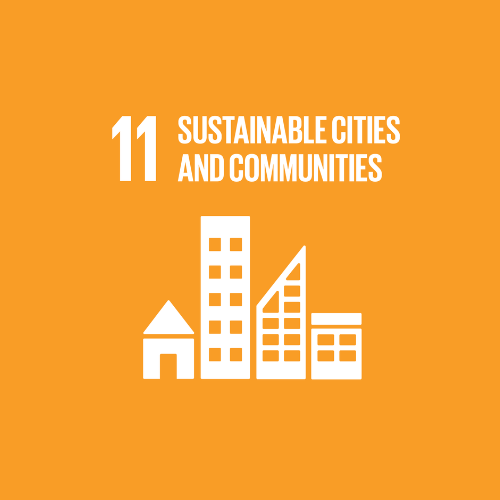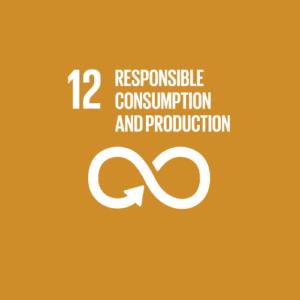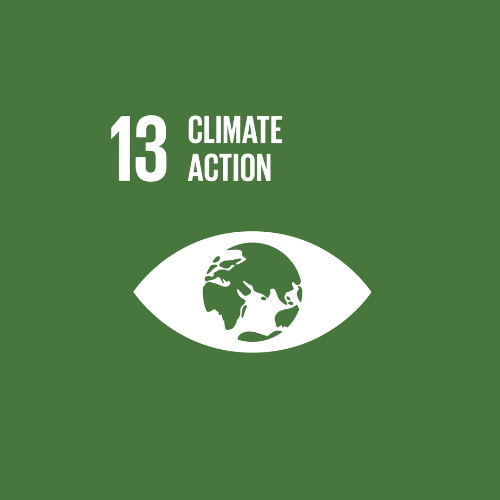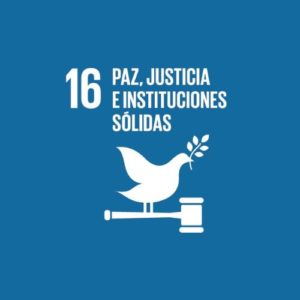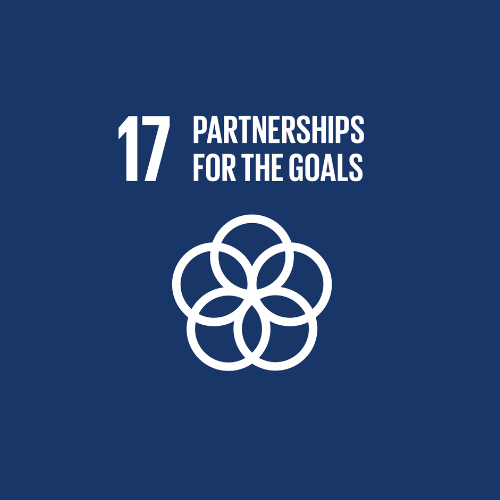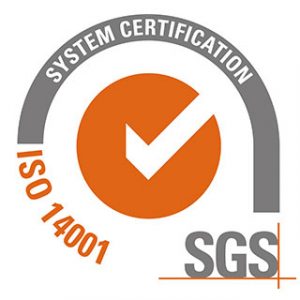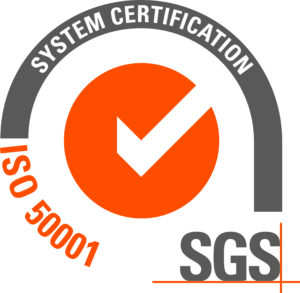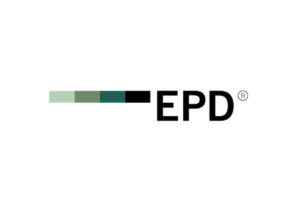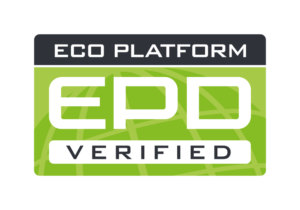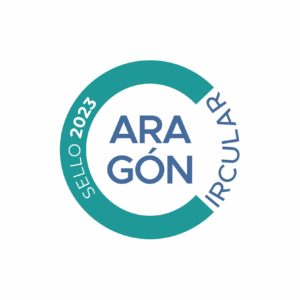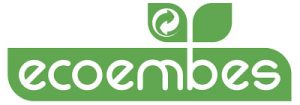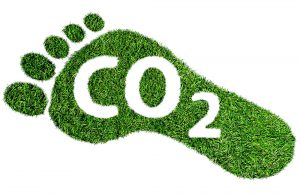

Guarantee a healthy life and promote wellbeing for all ages.
- We’re working on our processes, ergonomics and work atmosphere in order to protect our workers’ health and safety.
- We’re fostering a culture of prevention in healthcare.
- We’re enhancing the wellbeing of the users of our products through their anti-pathogen and easy-to-clean features, among other ways. Gres Aragón ceramic construction solutions do not burn and, therefore, produce no flames, smoke or toxic gases.
- Ceramic facades and roofs create building skins with an excellent level of protection from weather phenomena.
To ensure inclusive and equitable quality education and promote lifelong learning opportunities for all.
- We offer and provide continuous training to employees to improve their skills, by facilitating, as far as possible, changes in their timetable to enhance their performance.
- We have agreements with institutes and universities to receive trainees, offering professional continuity once they have completed their internships.
- We provide training on ceramic applications to specifiers, architects, tile installers, ceramic distributors and training schools, complementing it with visits to our production plants.
- We create a corporate culture under the focus on sustainability, committing ourselves to human rights, the environment, transparency and gender equality, through our policies. We have also implemented a Legal Compliance system that includes an Ethical Code of Conduct.
- We raise awareness of the SDGs among our employees and stakeholders.
- 87% of our hired staff live in depopulated areas. We provide a company transport system for them, facilitating mobility and encouraging them to stay in their usual place of residence.
Achieve gender equality and empower all women and girls.
- We have a wage policy that ensures equal compensation for equal work, irrespective of gender.
- We facilitate a work/life balance for women and men.
- We’re developing an Equality Plan.
- We have a Code of Ethics which refers to gender equality.
Ensure availability and sustainable management of water and sanitation for all
- Water is one of the raw materials used in the tile manufacturing process and also a refrigerant and cleaning agent. All the wastewater from production processes is reused, ensuring zero discharges.
Ensure access to affordable, safe, sustainable and modern energy for all.
- Implement energy saving measures in our production processes and work towards decarbonisation.
- Carry out energy audits.
- Implementation and Certification of the ISO 50001:2018 Energy Management System.
- Implementation of renewable energy for self-consumption in our production plants.
Promote sustained, inclusive and sustainable economic growth, full and productive employment and decent work for all.
- We contribute to local development by working globally. Our location in rural areas helps maintain the population and support the territory by providing stable employment and boosting these areas economically and socially.
- We re-invest the large majority of the resources generated in order to guarantee their redistribution and quality job creation.
Build resilient infrastructure, promote inclusive and sustainable industrialization and foster innovation.
- We innovate in products and processes by re-investing our profits and applying the most modern and sustainable technology available.
- We re-invest by creating new industries (FAVEKER) to create more jobs and meet the growing demand for environmentally-friendly products that foster sustainability.
- We invest in R&D&i by promoting technological development and innovation and do so frequently through alliances with universities and the public sector as well as with other private companies.
- We use Industry 4.0 technology to automatically and systematically get information on production processes in order to enhance them.
- We’re making progress with digital marketing.
Make cities and human settlements inclusive, safe, resilient and sustainable.
.
- By manufacturing resistant ceramic products with a long service life that are also sustainable with a high content of recycled materials.
- Our line of Faveker® ventilated facades features high thermal inertia and helps keep building skins temperature-insulated in order to increase user comfort and health. Moreover, it offers the ideal construction solutions to design Near Zero Energy Buildings (nZEB).
- We’re transforming the company’s facilities into green and resilient ones (FAVEKER-Alcorisa) by improving their safety and energy efficiency (switch to indoor LED lighting in production warehouses).
- We limit the use of paper (reducing print-offs), plastic (personal aluminum water bottles for a drastic reduction in the number of plastic water bottles used).
Ensure sustainable consumption and production patterns.
- We have implemented an ISO 14001 certified environmental management system at all of our production plants aimed at environmental excellence.
- We use resources efficiently as well as materials with a high recycled content.
- We manufacture 100% recyclable and long-lasting products to reduce the impact throughout a product’s lifecycle in comparison to other types of cladding.
- We encourage the use of renewable energies and energy efficiency all through the production process.
- We optimize the use of water and recycle 100% of all processing wastewater without generating sludge or other waste.
- We’ve established a Packaging Prevention Plan along with Ecoembes. We implement packaging eco-design measures to reduce the quantity and environmental impact of cardboard, plastic and wood packaging for our products throughout their lifecycles.
- We enhance our products by encouraging and promoting decarbonization in the construction sector with them.
Take urgent action to combat climate change and its impacts.
- We have implemented an ISO 14001 certified environmental management system at all of our production plants.
.
- We’re working to establish a system for calculating our carbon footprint under standard ISO 14064:2019 which includes 3 emissions scopes (direct, indirect from electricity consumption and other indirect emissions). The main objective is to calculate our emissions in order to set up carbon footprint reduction plans throughout the organization.
- We provide our customers with an Environmental Product Declaration (EPD) for our range of extruded stoneware tiles which calculates the impacts throughout the product lifecycle.
- We’re a member of the Green Building Council Spain, an association that promotes a culture of sustainable, energy efficient and environmentally-friendly construction.
- We invest in R&D&i to find new solutions for climate change in addition to establishing public/private alliances with universities and other companies to engage in actions that help preserve the climate.
To promote peaceful and inclusive societies for sustainable development, facilitate access to justice for all and build effective and accountable inclusive institutions at all levels.
- We comply with Spanish national legislation and international human rights law.
- We have implemented an anti-harassment protocol in our centres.
- We have implemented and will also be certified by the 4th quarter of 2023 a Criminal Compliance system under the UNE 19601 standard that includes a Code of Ethics and a Legal Compliance Policy. In addition, to report any conduct that breaches the provisions of this Code, a whistle-blowing channel has been set up on our website.
- We have a Social Responsibility Policy in which we establish our commitments to respect the human rights of our employees, customers, suppliers and society.
Strengthen measures to implement and revitalize the Global Partnership for Sustainable Development.
- We’re committed to the UN Sustainable Development Goals (SDG) as expressed in our Mission, Vision and Values.
- We have identified and assessed the SDG related to our core business and are working on them mainly through specific actions plans.
- We set up collaboration processes with other stakeholders in the ceramics and construction market.
ISO 14001 ENVIRONMENTAL MANAGEMENT CERTIFICATION
Gres Aragón has three manufacturing plants ISO 14001 certified which includes the design, manufacturing and marketing of the products. The environmental management system is based on fostering the sustainable use of resources, increasing the energy efficiency, mitigating climate change and maximizing waste re-use.
ISO 50001 ENERGY MANAGEMENT CERTIFICATION
GRES ARAGÓN has been certified in May 2023 under the ISO 50.001 standard in the two production plants in Alcañiz. This certification guarantees that GRES ARAGON has an efficient energy management system, which reduces energy consumption and environmental impact.
ZERO RESIDUAL WASTE
GRES ARAGÓN has been certified since 2021 with this circular economy-based ZERO WASTE environmental seal. In 2024, SGS confirmed that more than 99.92% of the waste generated at all production sites in Alcañiz is recycled and re-used in the very production process at its sites or delivered to authorized managers to prevent elimination at dumps.
RECYCLED MATERIAL CONTENT
GRES ARAGON calculates the average content of pre-consumption recycled material annually in its different product ranges pursuant to standard ISO 14021. The recycled material content mainly comes from internal recycling of ceramic waste before and after firing as well as the recycled content of raw materials.
ENVIRONMENTAL PRODUCT DECLARATION (EPD)
GRES DE ARAGÓN has got 2 Environmental Product Declarations (EPD): FAVEKER porcelain tile ventilated facade models GA16 and GA20 manufactured by means of horizontal extrusion from the group AIa; and GRES ARAGÓN pressed porcelain tile slabs in formats ranging from 12x25 cm to 60x120 cm from the group BIa in the tiling series (Urban, Ordesa, Tibet…) for sports pools and the industrial Aciker Plus series.
They have been verified by the EPD International System and have been recognized in Europe by the ECO Platform.
ARAGÓN CIRCULAR SEAL
The traditional commitment of GRES ARAGON-FAVEKER to the circular economy has been recognized, and we have been obtained the Aragón Circular Seal 2023. This is a distinction awarded by the Government of Aragón to companies that implement the circular economy in their management, having an impact on their value chain.
GREEN BUILDING COUNCIL SPAIN - GBCE
GRES ARAGÓN is a member of the Green Building Council Spain, an association that promotes a culture of sustainable, energy efficient and environmentally-friendly construction. FAVEKER® ventilated façades contribute to obtaining LEED®, BREEAM and GREEN credits, as detailed in the product sheet available on the GBCe Materials Platform.
ECOEMBES
Gres Aragón has endorsed the Ecoembes packaging prevention plan. We implement packaging eco-design measures to reduce the quantity and environmental impact of cardboard, plastic and wood packaging for our products throughout their lifecycles.
CARBON FOOTPRINT
GRES ARAGÓN has developed the calculation of the carbon footprint of the organization under the ISO 14064:2019 standard, which includes the 3 scopes of emissions (direct, indirect due to electricity consumption and other indirect). The facades have a product carbon footprint certified by the EPD System. The main objective is to calculate the emissions to project plans for improvement to reduce greenhouse gas emissions.
